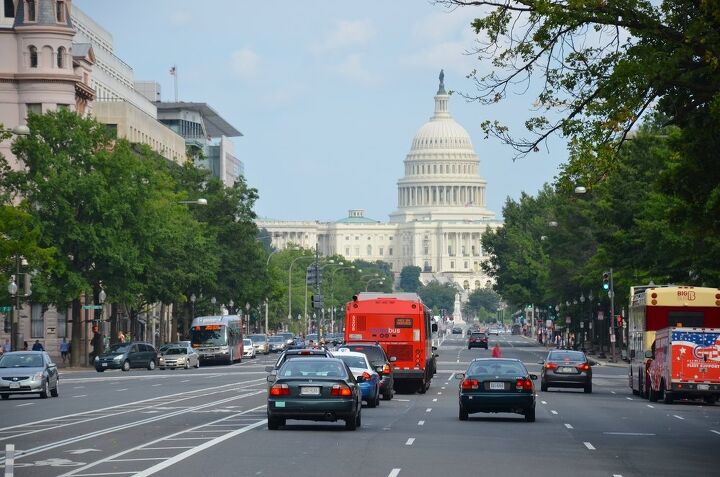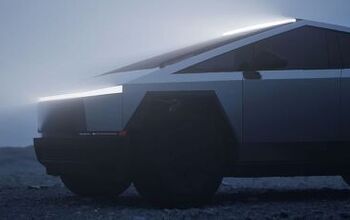The Great Gas War: House Committee Plans Hearing On Fuel Efficiency Rollback

On Tuesday, the House of Representatives Energy and Commerce Committee said it will schedule a hearing on June 20th regarding the Trump administration’s proposal to roll back automotive efficiency standards. The decision comes from Committee Chairman Frank Pallone, Jr. (D-NJ), Consumer Protection and Commerce Subcommittee Chair Jan Schakowsky (D-IL) and Environment and Climate Change Chairman Paul Tonko (D-NY) — all of whom are in clear opposition to the suggested plan.
The groups will hold a joint hearing to discuss Corporate Average Fuel Economy (CAFE) standards and carbon pollution regulations affecting light duty vehicles as they relate to the current administration’s plan to effectively freeze efficiency targets between 2020 to 2026.
“Rolling back our clean car standards threatens American jobs, public health, the climate and consumers. The automobile industry doesn’t even support the Trump Administration’s proposal – no one does, except the oil companies that stand to profit from Americans spending more at the pump filling up less efficient cars,” said Pallone, Schakowsky and Tonko in the release. “We look forward to questioning both the National Highway Traffic Safety Administration and the Environmental Protection Agency about this senseless proposal.”
That gives us some idea of what to expect from the hearing. While automakers previously supported the Obama-era efficiency targets, claiming they could be met, their position changed by 2016.
Within the first month of Donald Trump entering office, auto executives met with him to discuss the state of the industry and the possibility of a fuel economy rollback. The administration proved receptive to their pleas and began working with the Environmental Protection Agency and the Department of Transportation to see what could be done.
However, saying the industry “doesn’t even support” the plan is rather misleading. Worried that the deal could fracture the U.S. market, automakers would prefer to see a national solution. But the rollback is believed to save them $300 billion in regulatory fees, so it would be shocking if they didn’t have at least some interest in it coming to pass. It just might not be worth it after taking the bigger picture into account.
Blowback from environmentalists and 18 states led by California have also encouraged automakers to be extra careful with their words, lest they find themselves on “the wrong side of history.” Rather than support the rollback openly, most manufacturers encouraged California and the White House to seek compromise and settle somewhere in the middle. Meanwhile, they’re still promoting green tech, trying to prove to the public that they sincerely plan to continue working towards more environmentally friendly products.
Considering the Golden State’s heavy involvement, the California Air Resources Board’s Mary Nichols is likely to testify. California Governor Gavin Newsom may also make an appearance, as he’s made culling tailpipe emissions one of his pet projects. Heidi King, deputy administrator of the NHTSA, should also be in attendance — as well as various representatives (past and present) from the EPA, environmental groups, and the automotive industry.
The fun starts on June 20th.
[Image: Lissandra Melo/Shutterstock]

A staunch consumer advocate tracking industry trends and regulation. Before joining TTAC, Matt spent a decade working for marketing and research firms based in NYC. Clients included several of the world’s largest automakers, global tire brands, and aftermarket part suppliers. Dissatisfied with the corporate world and resentful of having to wear suits everyday, he pivoted to writing about cars. Since then, that man has become an ardent supporter of the right-to-repair movement, been interviewed on the auto industry by national radio broadcasts, driven more rental cars than anyone ever should, participated in amateur rallying events, and received the requisite minimum training as sanctioned by the SCCA. Handy with a wrench, Matt grew up surrounded by Detroit auto workers and managed to get a pizza delivery job before he was legally eligible. He later found himself driving box trucks through Manhattan, guaranteeing future sympathy for actual truckers. He continues to conduct research pertaining to the automotive sector as an independent contractor and has since moved back to his native Michigan, closer to where the cars are born. A contrarian, Matt claims to prefer understeer — stating that front and all-wheel drive vehicles cater best to his driving style.
More by Matt Posky
Latest Car Reviews
Read moreLatest Product Reviews
Read moreRecent Comments
- Spectator Wild to me the US sent like $100B overseas for other peoples wars while we clammer over .1% of that money being used to promote EVs in our country.
- Spectator got a pic of that 27 inch screen? That sounds massive!
- MaintenanceCosts "And with ANY car, always budget for maintenance."The question is whether you have to budget a thousand bucks (or euro) a year, or a quarter of your income.
- FreedMike The NASCAR race was a dandy. That finish…
- EBFlex It’s ironic that the typical low IQ big government simps are all over this yet we’re completely silent when oil companies took massive losses during Covid. Funny how that’s fine but profits aren’t. These people have no idea how business works.


































Comments
Join the conversation
Maybe I'm with the crazy Democrats after all: abolish all border controls so that people can bring in whatever the hell vehicles they want, tax free, into the USA!! Then CAFE standards etc. won't mean a thing since only suckers will buy that restricted, overpriced, unreliable garbage.
James Charles--I doubt most people think about the future, it is what they can get today.